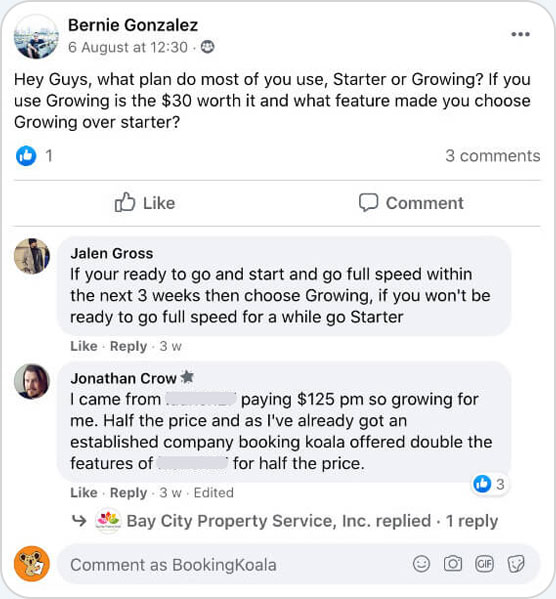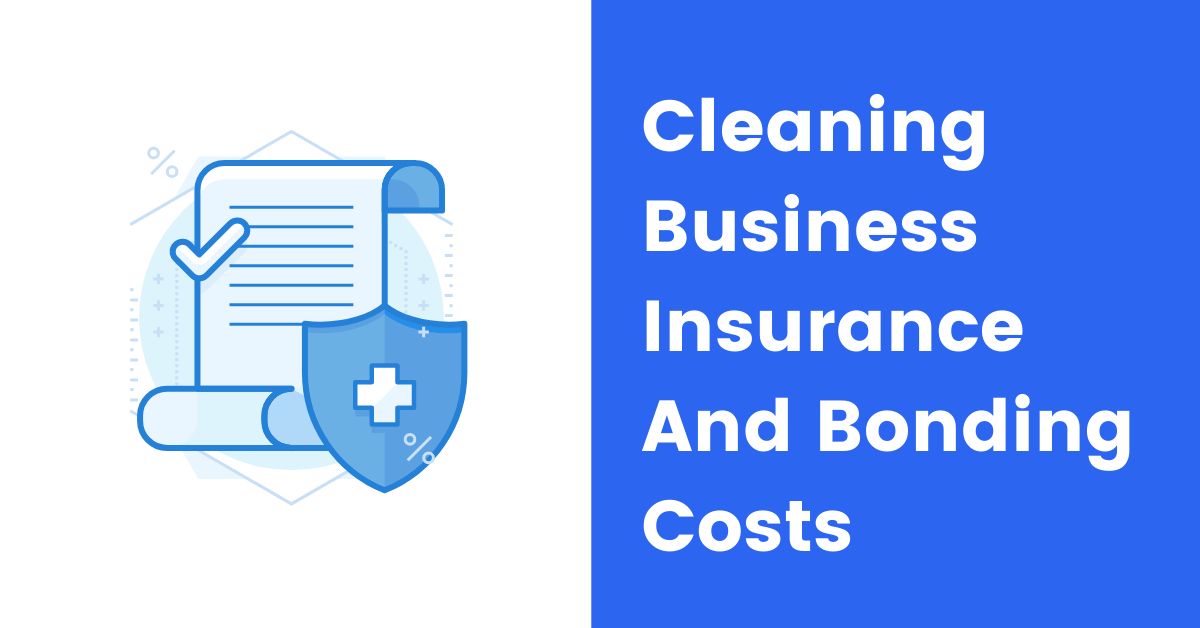The costs associated with insurance and bonding for a cleaning business vary, but are generally low. No matter the size of your business or the number of employees your cleaning business employs, both insurance and bonding are necessary factors to maintaining a successful cleaning business. Whether or not you will need each type depends on the services you offer and the classification of your workers. If you classify your workers as independent contractors, you will have an extra option regarding insurance and bonding.
Insurance is the first aspect to be examined. Insurance policies are purchased by cleaning businesses to cover the business’ risks and to protect the business’ assets. If your cleaning business’s focus is residential, you will perform your daily cleaning jobs at numerous different sites. As a result, you create liability for your cleaning business. If damage were to occur during a cleaning job, it would be on someone else’s property. It is vital to take into consideration the ramifications of damage to someone else’s property. Can your business survive if a client sues due to damage allegedly caused by your cleaning business?
Bonding costs, similar to insurance policies, vary dependent on the variables of your cleaning business. Bonding provides a net of security and assurance for both you and your clients. When determining whether or not to get your cleaning business bonded, you will want first to check your state regulations. Dependent on the state, you may be required to purchase a surety bond as a cleaning business. If your state does not require it, it is still highly suggested that your cleaning business invests in a janitorial cleaning bond. This bond is an agreement between your company, your client, and whichever insurer you choose to purchase your policy through, also known as the surety. If a situation occurs requiring the use of the bond, the surety will pay the client directly, and the cleaning business will have to reimburse the surety.
For example, perhaps your employees are working at a site, and while cleaning the kitchen, one employee mistakenly stains the wood on one of the cabinets; insurance would help cover the damages. Additionally, say your employee has just completed mopping the kitchen floor when the client walks in, slips, and is injured by the fall. Carrying insurance would mean your cleaning business would have coverage for the costs associated with the injury. Of equal importance is coverage if an employee steals from a client during a cleaning job. This type of coverage can be accomplished by purchasing a bond. As a cleaning business, there are multiple types of insurances that you can carry in addition to janitorial bonds that can assist in supplementing your insurance and providing peace of mind to your clients.
Overview of Insurance Policies and Bonding Options
General liability insurance is the most common type of insurance held by cleaning businesses. This type of insurance is similar to the liability insurance carried with most auto insurance policies. General liability insurance for a cleaning business entails protection if someone claims to have been injured due to the actions of your business. General liability insurance also covers your cleaning business if your business causes property damage. Bodily injury and property damage costs are based on limits set forth by the policy that you purchase. There is also an option to include injured individuals’ legal fees and medical fees in a general liability policy.
Commercial property insurance and commercial auto insurance costs will vary depending on the size of your business. Commercial property insurance will cover the expenses required to replace or repair the physical assets of your cleaning business. The assets covered are only those located at the physical address as designated on the insurance policy. On the other hand, commercial auto insurance will cover injuries, damage to property, and costs of lawsuits developing as a result of an accident while driving a vehicle owned by the business. This type of coverage can be especially important if you allow employees to drive themselves and others in a company vehicle.
Inland marine insurance is a particular policy that covers the property of the business as you travel from one job site to another. As a cleaning business, especially one that specializes in residential cleaning, you will likely spend a significant amount of time commuting from one job site to the other. Carrying inland marine insurance is necessary because commercial property insurance will only cover the property located at the address on the insurance policy. Once you load up your truck and drive away, the tools that you are transporting in your vehicle are no longer covered. Inland marine insurance ensures that you have coverage during these periods of travel.
Equally essential to the success of your cleaning business are janitorial bonds, which are also known as surety bonds, which can cost as low as 1% of the total bond amount. Investing in a surety bond is more closely related to qualifying for a loan with a particular lender. As a result, it may be difficult for a cleaning business with less pristine credit to get a janitorial bond. Even still, every cleaning business should attempt to invest in a bond whenever possible.
General Liability Insurance
As a cleaning business, it is imperative that you carry general liability insurance. General liability insurance is a policy that provides protection of your cleaning business for claims by individuals to have been injured by your company. Property damage caused by your business, as well as an option to include legal and medical fees of injured individuals, is also a part of general liability insurance. A little-known fact about general liability insurance is that it also provides coverage against claims of slander, libel, or injury resulting from business advertisements. Any claims or settlements reached during lawsuits, as a result, will also be covered, as well as legal defense costs for your cleaning business. Coverage of this range is invaluable due to the nature of the industry. The risk is elevated, and maintaining general liability insurance can assist in ensuring your personal assets do not one day get put on the line due to adverse action against your business. It is important to remember that this type of insurance does not cover employee injuries or commercial vehicles as these are covered under different policy types.
For the average small business, the annual cost of general liability insurance ranges from $350 to $650. The cost can vary drastically based on the business type, the business size, and the coverage limits chosen. On average, cleaning businesses specifically pay $730 per year with an average deductible of $1,000. Looking at the estimated costs, it is evident that the cleaning business’s annual general liability insurance costs are above the usual average for small companies. This is because of the industry. As a cleaning business, your primary function is to go onto other people’s property and perform job functions. As a result, the risk of the insurance company needing to pay out is heightened. Every day you will be placed in a situation where you may need to use your general liability insurance policy.
Commercial Property Insurance
Commercial property insurance is necessary if you own or lease a building and store your property’s physical assets at your physical address. This will be important to carry as a cleaning business due to the specialized equipment needed to perform specific cleaning functions. Pressure washers, trucks, carts, carpet steamers, vacuums, etcetera will all be covered under a commercial property insurance policy purchased for your cleaning business. Additionally, any furniture or fixtures you have within your cleaning business’s office space will also be covered under this policy. Without commercial property insurance for your cleaning business, you run the risk of encountering damaged equipment and being unable to afford the cost of repair or replacement.
Commercial property insurance costs for your cleaning business will vary annually at a rate of about $450 to $1,100. It isn’t easy to estimate the exact cost of commercial property due to the many variables that contribute to its price. Each state also has higher or lower costs that vary exorbitantly as well. If you seek to purchase insurance for the business’s physical property for up to $15,000, your small cleaning business can expect to pay approximately $725 annually with a $1,000 deductible.
If you refer back to the discussion on general liability insurance, you will remember that costs were about the same per year for a general liability policy. This slow rise in overhead costs is something to keep in mind as you are choosing which policies to invest in and how much coverage you are seeking for each policy. You may have to pay for each type of policy separately, and there is no guarantee that your insurer will provide any kind of multi-policy discount to curtail the costs of carrying multiple policies. It would be wise to base your predictions of necessary coverage on actual numbers. Be sure to account for your supplies, equipment, and vehicles when estimating how much coverage to obtain. Undershooting can lead to the same result of having no insurance, bankruptcy, and the closing of your cleaning business.
Commercial Auto Insurance
Commercial auto insurance will be necessary if you plan to own or use a business vehicle for your cleaning business. If vehicles are used for any portion of your work, commercial auto insurance is a necessity. Commercial auto insurance will cover accidents that involve your cleaning businesses’ vehicles. This coverage can include injury and property damage as well as medical payments and collision. Within commercial auto insurance are many different coverages. One of the many is liability coverage, covering any third-party medical costs or repair costs when an insured driver is at fault. For example, if you were to have an employee rear-end another vehicle and the occupant were to need minor medical care, liability coverage would cover the medical and repair costs associated with the accident.
On average, a typical small business can expect to pay roughly $500 to $2,500 annually per vehicle for commercial auto insurance. These rates increase depending on the size of the car. As a cleaning business, you will likely need a vehicle larger in size than a commercial car. As a result, you will typically be using a delivery or cargo van for cleaning jobs. You can expect the typical premium range to increase to about $3,200 to $6,300 annually per vehicle. This increase is a significant figure to keep in mind, especially when determining budget needs. If you plan to provide transportation for your employees from each of the sites, you will create a liability risk every time you transport them. By maintaining commercial auto insurance, you can ensure your business does not get taken under due to an accident that your cleaning business is found to be the responsible party.
Inland Marine Insurance
Inland marine insurance covers your physical assets as you transport them from one job site to another job site. As a cleaning business, you will likely have at least one vehicle transporting your cleaning supplies from one job site to the next and back to your physical address. In this case, it would be wise as a cleaning business to ensure you purchase inland marine insurance. Since commercial property insurance only covers property while stationary at your primary physical address, inland marine insurance provides a supplement that extends the protection of your assets while you are transiting from one cleaning job to the next.
A small cleaning business can expect to pay between $250 to $600 for a policy purchased separately on its own per year. Included within the cost of the policy are protection against fire, theft, collision, earthquake, damage by wind, and damage by lightning. Inland marine insurance does not cover the transportation of your assets across any body of water protected under an ocean marine insurance policy.

Join Our Facebook Community
Join Facebook GroupJanitorial Bonds
Janitorial bonds are a type of surety bond that can be purchased by your cleaning business to create a contract between three distinct parties. The contract is between the cleaning business, the client of the company, and the business that will issue the bond. When a bond is purchased, assurance is granted to the client. Assurance could be that if an employee commits a fraudulent or dishonest act, such as stealing from a customer’s home, the bond will pay the client the cost of any damages up to the amount of the bond. Janitorial bonds are not a requirement for your cleaning business, but are a great asset.
Being fully licensed and bonded sends a message to clients that you are invested in the worth of their property and valuables. Clients who know that you are bonded can rest easy knowing that you have invested in a policy that will allow them to be reimbursed should any of their items be stolen. While no one wants to believe that their employee would steal from a client’s home, it is better to have peace of mind knowing that should that ever occur, your cleaning business will be covered against the aftermath of employee theft. A small business seeking a bond in the amount of $10,000 can expect to pay approximately $100 annually. One key point to keep in mind is that bonds allow the debt to be paid, but the cleaning business will ultimately be required to reimburse the insurance company for any payments paid out under the bond.
Insurance and Bonding Costs for Independent Contractors
One alteration to the workings of insurance and bonding occurs when your workers are classified as independent contractors instead of employees. If employees are classified as independent contractors, they will most likely be required to carry their own insurance. Similar to the insurance policies already presented, independent contractors can obtain independent contractor general liability insurance. Independent contractor general liability insurance will cover property and bodily damage caused by the business, reputational harm, as well as advertising injury. Commercial auto insurance and commercial property insurance are also available to independent contractors to cover accidents while driving business vehicles. It also provides protection of tools and equipment used for work.
By maintaining independent contractor general liability insurance, an independent contractor is bestowed with all the benefits of the insurance policy but at the expense of the independent contractor. These small savings can be a lucrative offer for your business, depending on your business size and the number of independent contractors or employees. An independent contractor who carries their own insurance sets themselves at an advantage within their field. To obtain insurance, independent contractors will need to purchase a policy based on their work needs. For an individual policy, general liability will cost approximately $450 per year. For such a small cost, many independent contractors have realized that maintaining general liability insurance is more beneficial to them in the long run.
Overall, cleaning business insurance and bonding costs vary depending on many different factors. Both insurance and bonding are essential aspects to maintaining a successful cleaning business. Many insurance policies offer many additional coverages, including general liability, commercial property, commercial auto insurance, and inland marine insurance. These can be supplemented by janitorial bonds, also known as surety bonds. A combination of insurance and bonding can ensure you provide the highest quality service to your clients by protecting their valuables. The costs may seem to add up to a large amount to be paid annually, but using independent contractors can assist in remedying those costs. Most independent contractors must carry their own insurance, thus shifting the cost burden to the independent contractor. Despite who is ultimately responsible for the price, the key thing to remember is that both insurance and bonding are good practices to follow to prevent future financial crises.
To help you get started in the cleaning industry, check out these helpful blog posts:
- How to start a cleaning business
- How profitable is a cleaning business
- Cleaning business marketing ideas
- Best cleaning business names
- Cleaning business insurance
- Cleaning business license
- Finding employees for cleaning business
- How much should I pay my cleaning employees
- How much should i charge for cleaning a house
- Cleaning business software

